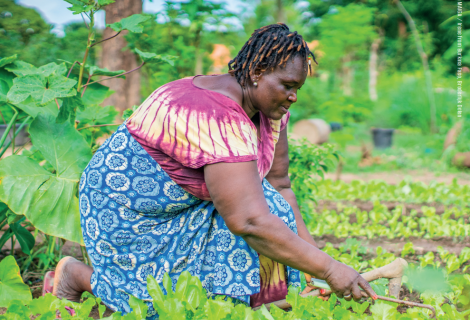
2025 Assessment of EU support to Agroecology in 5 African Countries
SENEGAL, BURKINA FASO, DR CONGO, UGANDA, KENYA
As the European Union begins shaping its next seven-year budget, this study arrives at a crucial moment. It shines a spotlight on a growing recognition within EU development policy: agroecology is essential for building resilient, just, and sustainable food systems in Africa.
Commissioned by a diverse alliance of African and European civil society organisations, this study explores how EU development cooperation is supporting agroecological transitions in five African countries—Senegal, Burkina Faso, the Democratic Republic of Congo, Uganda, and Kenya. It offers fresh insights into how EU policies, funding mechanisms, and Delegations on the ground can either enable or hinder systemic change.
At the heart of the EU’s external action lies the Global Gateway strategy, which puts climate and clean energy front and centre. But in agriculture, its focus on value chains and international markets risks sidelining farmer-led, locally rooted food systems. The danger is clear: without a shared definition of sustainability, EU investments may end up reinforcing industrial agriculture models, rather than empowering agroecological solutions.
Yet there is also real potential. Agroecology offers more than an alternative—it is a pathway to transform food systems by aligning with ecological principles, empowering small-scale farmers, supporting local markets, and ensuring inclusive governance. By investing in participatory approaches like territorial markets, local food processing, and people-centred certification systems, the EU can help unlock this potential.
For the Global Gateway to truly support agroecological transformation, the EU must clearly define sustainability in agriculture, adopt binding standards that distinguish agroecology from “greenwashed” models, and ensure responsible investment practices. The upcoming Operational Guide on Agroecology from DG INTPA could provide much-needed direction.
With the right political will, financial tools, and partnerships, the EU can become a genuine ally in the global shift toward food systems that are just, climate-resilient, and rooted in the knowledge and agency of African farmers.